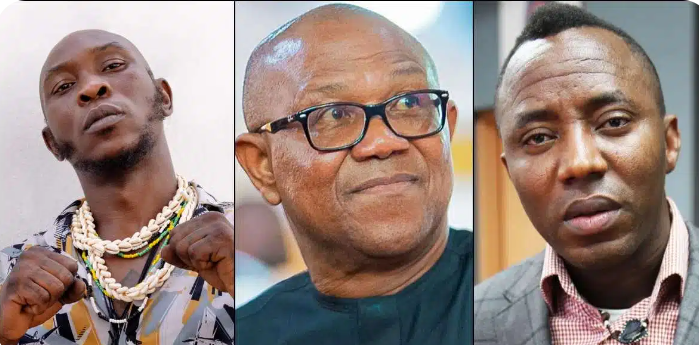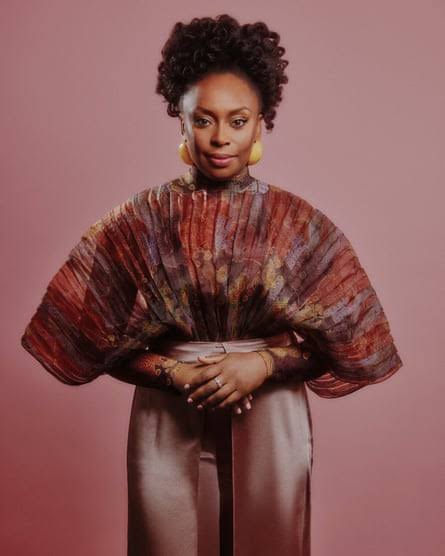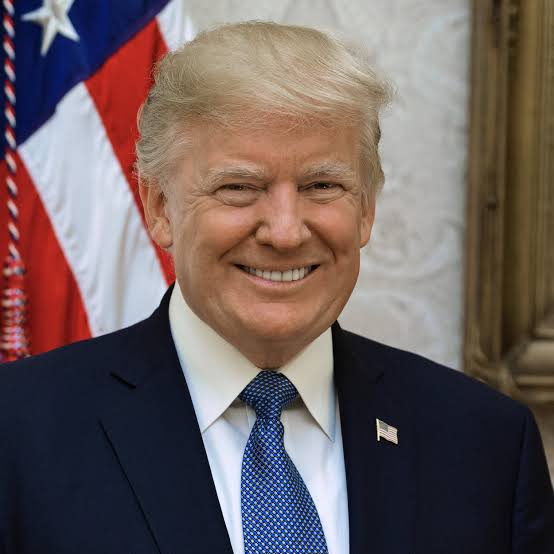
“Sowore Is More Competent Than Peter Obi” – Seun Kuti Sparks Heated Debate With Controversial Statement

In a video that has quickly gone viral across social media platforms, Afrobeat musician Seun Kuti has once again stirred the political waters with a bold declaration: that activist and former presidential candidate, Omoyele Sowore, is more competent than former Anambra State governor Peter Obi. The outspoken artist made the remark during a live video session with fans, sending political commentators, supporters, and critics alike into a frenzy of reactions and rebuttals.
As Seun Kuti interacted with his audience, the discussion shifted toward the leadership crisis in Nigeria and the recurring disappointments experienced under successive administrations. It was in the heat of this conversation that a fan posed the politically charged question: between Omoyele Sowore and Peter Obi, who does he consider more competent to lead Nigeria? Without hesitation, Seun replied, “Sowore is more competent than Peter Obi,” adding that even the fan who asked the question was better suited for leadership than Obi himself.
His response, though in character for the fiery musician known for his blunt critiques of the Nigerian establishment, still managed to shock viewers and ignite instant controversy. Kuti did not mince words as he bemoaned the cyclical nature of political failure in Nigeria, suggesting that even supposed reformers may hide behind noble appearances while enabling the same system they claim to oppose. “Sometimes the evil men disguise under different names,” he said, cautioning citizens not to be swayed by surface-level charm or sweet campaign rhetoric.
Social media was immediately set ablaze with contrasting views. Supporters of both Peter Obi and Omoyele Sowore took to various platforms to air their perspectives. A user identified as @chi_chi_maria, who described herself as an Igbo woman, sided with Kuti’s opinion, stating, “Y’all need to stop with the tribalism. I’m Igbo and I support Sowore because his ideology makes sense, detailed. He’s been calling for real reform for years but people ignored him. Meanwhile, PO had 8 years and more yet no real change. Now he’s selling the same sweet talk. Wake up.”
Others, however, took issue with the apparent regional undertones of Kuti’s statement and the backlash it generated. @AMADIOHA01 pointed out what he sees as a consistent attack pattern against Peter Obi, especially from the South-West, writing, “The SW will not stop coming for Peter Obi both individually and media. Seun spoke about Fulani herdsman terrorists but @OneJoblessBoy is more interested for Obi to be dragged than the killing go on because he feels like he is safe.”
Another commenter, @folamiyi, took a more nuanced approach, acknowledging past support for Obi while expressing disillusionment. “I voted Obi last election but I observed he’s not a politician, just an opportunist in politics. Go back to the days when Tinubu was the opposition—see what he did to become the president by power by force. Jonathan’s regime was dealt with by them,” he noted, implying that Obi lacked the political grit to make a real difference.
Seun Kuti is no stranger to controversy. As the youngest son of Afrobeat legend Fela Kuti, he has inherited not only his father’s musical genius but also his radical political stance. Known for his sharp criticism of politicians across party lines, Seun has consistently rejected populist narratives and often lashes out at what he sees as performative activism and deceitful leadership.
This latest outburst is not the first time he has aimed his criticisms at Peter Obi. During the 2023 presidential campaign season, Seun made headlines for calling Obi a “social media project,” arguing that many of Obi’s supporters were caught up in hype rather than substance. His refusal to align with the dominant “Obidient” movement made him a target for backlash, but he remained undeterred, insisting on the need for ideological clarity over charisma and fanfare.
Omoyele Sowore, for his part, is often seen as a fringe candidate due to his unfiltered activism and radical calls for revolution, but he has also gained admiration among Nigerians who believe the country needs a complete systemic overhaul. As the publisher of Sahara Reporters and a leading voice in civil protests, Sowore has a track record of challenging powerful interests and facing legal consequences for his stance, including multiple arrests.
Peter Obi, conversely, represents a more centrist image—a successful businessman turned technocratic politician who promises prudent economic management and policy-driven reforms. His tenure as governor of Anambra is often cited for fiscal responsibility and infrastructure development, though critics argue that his achievements were modest compared to the hype.
What Seun Kuti’s statement has done, however, is reignite a deeper conversation within Nigeria’s political sphere: What constitutes competence in leadership? Is it about radical disruption like that championed by Sowore, or pragmatic, step-by-step reform as Obi suggests? Should Nigerians look for fiery conviction or political dexterity?
The live video, which was clipped and circulated widely on platforms like Instagram, X (formerly Twitter), and WhatsApp, has only deepened the political divides ahead of the 2027 election cycle. While many were quick to dismiss Kuti’s remarks as unnecessarily provocative or even disrespectful, others saw it as a bold truth that challenges popular narratives.
This moment also speaks volumes about the evolution of Nigeria’s political discourse, where artists, influencers, and activists increasingly shape public opinion. It is no longer unusual for musicians like Seun Kuti to use their platforms as pulpit and megaphone, reaching millions with political messages that once would have been limited to newspaper editorials or town halls. In an age where internet virality can make or break reputations, the boundary between entertainment and politics continues to blur.
Whether Seun Kuti’s declaration will influence voters or merely remain another flash in the pan is yet to be seen. But what’s certain is that the debate over Nigeria’s future leadership is far from over. As the country continues to grapple with economic hardship, insecurity, and political frustration, more voices—no matter how controversial—are likely to emerge, challenging the status quo and questioning those who claim to offer hope.
For now, Seun Kuti has once again made his mark—not with a saxophone solo or a stage performance, but with a single sentence that has echoed across Nigeria’s digital landscape, sparking a firestorm that shows no sign of burning out.


